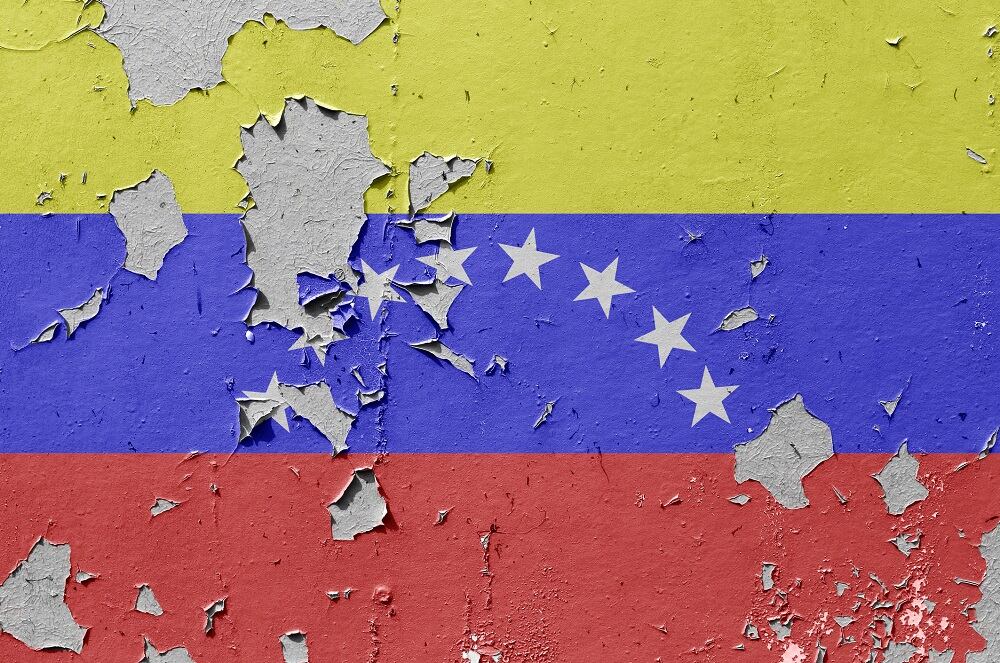The Regional Refugee and Migrant Response Plan for Refugees and Migrants (RMRP 2020) sets out the key actions it will take between January-December 2020 to improve the humanitarian conditions for refugees and migrants from Venezuela.
Venezuelan refugees and migrants in LATAM
Approximately 4.6 million refugees and migrants from Venezuela reside around the world, figures from early November 2019 show. Almost 80% are in Latin American and Caribbean countries.
With no plans to return to Venezuela in the immediate or near future, current trends estimate the number of Venezuelan refugees and migrants will increase to 6.5 million by the end of 2020. The Latin America and Caribbean region can anticipate up to 5.5 million Venezuelan refugees and migrants residing in their countries by the end of 2020, representing a significant rise from 140,000 in 2015.
Nutrition aims
As many LATAM countries maintain an open border policy, with some modifying their legislation to meet the needs of refugees and migrants, RMRP 2020 was launched in 2019 to respond to the large number of Venezuelan refugees and migrants in LATAM.
By October 2019, government support led to over two million residencies issued to Venezuelans, and 630,000 were registered as asylum seekers or recognized as refugees. Extra measures are underway in LATAM nations to record and consistently oversee the residential statuses of undocumented refugees and migrants.
The RMRP 2020 has three core objectives, Yvette Fautsch, Nutrition Specialist at UNICEF, told us:
- Through nutrition assessments, identify vulnerable groups needing support to prevent undernutrition and identify cases of undernutrition to be referred to adequate care;
- Prevent the deterioration of the nutritional status of vulnerable groups: children under five (with a focus on children under two), and pregnant and lactating women; and
- Manage identified cases of undernutrition and ensure their recovery through ensuring access to nutrition services for refugee and migrant populations and affected host communities.
Overcoming current obstacles and creating change
Some countries in LATAM, such as Colombia, Ecuador, Peru, Brazil and Guyana, already have action plans relating to nutrition interventions. Other LATAM countries, however, will need to prioritise nutritional actions to ensure vulnerable groups receive advice and diets that meet their nutritional needs to avoid undernutrition, malnutrition and other contributing factors that may lead to death.
In the LATAM region, Venezuelan refugees and migrants are at risk due to several combined factors. Firstly, there is limited primary data on the population’s nutritional status, restricting understanding of nutritional needs. Next, health and nutrition services that provide adequate support are lacking, increasing the possibility that nutrition problems will remain undetected. Access to sufficient food, safe drinking water and sanitation facilities are also limited.
Specific action will also be taken to tackle nutrition disorders. “Identified cases of acute malnutrition will be referred to adequate health care for the management of their condition and their recovery,” shared Fautsch.
The plan will enable contributing parties to ensure the availability of supplies to treat acute malnutrition, such as supplementary and therapeutic food for use by local health services, extramural health teams and partners. It will also strengthen the capacity of local partners and authorities to identify, refer and treat cases of acute malnutrition.
Financial support
At present, there are 131,000 people in need, with 81,000 targeted in LATAM for nutritional help. Ten partners are working to support the $6.81 mn required to provide adequate nutrition solutions, the report says. Nutrition-based initiatives also need to be aligned with food security interventions. The report indicates that the need for food security is even greater, with 2.59 mn people in need and 1.42 mn targeted. Collectively, 41 partners are coordinating efforts and collaborating on solutions to strive to pledge $211.87 mn to overcome the levels of food insecurity among Venezuelan refugees and migrants.
“Cash-based interventions (CBI) are not needed in the nutrition plan as the required supplies are not bought by beneficiaries but provided through health services along with counselling and care,” reveals Fautsch.
Therefore, nutrition items such as supplementary and therapeutic food, micronutrient tablets for pregnant and lactating women, multiple micronutrient powders for children under five can be provided without CBI.
A year of action
Commenting on what the plan hopes to have achieved by the end of 2020, UNICEF’s Nutrition Specialist, Yvette Fautsch, explains the three core goals the collaborating industries expect to accomplish:
- Obtain information on the nutrition situation of the refugee and migrant population on the move/in transit;
- Provide preventive and curative nutrition support and referral for all children under five and pregnant and lactating women who required it;
- Strengthen the capacities of local partners and authorities to support infant and young child feeding practices and maternal nutrition and/or to identify, refer and treat cases of acute malnutrition.
Global coordination and collaboration
Launched in Bogotá, Colombia, RMRP 2020 combines the efforts and input of 137 organizations. It sets out coordination plans and fundraising tools to improve nutrition and humanitarian needs.
Commenting on the need for unity and collaboration in driving change, Eduardo Stein, Joint UNHCR-IOM Special Representative for Venezuelan refugees and migrants, explained: “Despite many efforts and other initiatives, the dimension of the problem is greater than the current response capacity, so it is necessary that the international community doubles these efforts and contributions to help the countries and international organizations responding to the crisis.”
Nutrition and food security are two of the key areas that the RMRP 2020 will tackle. “Only through a coordinated and harmonized approach will it be possible to effectively address the large-scale needs, which continue to increase and evolve as the current crisis deepens,” added Stein.



